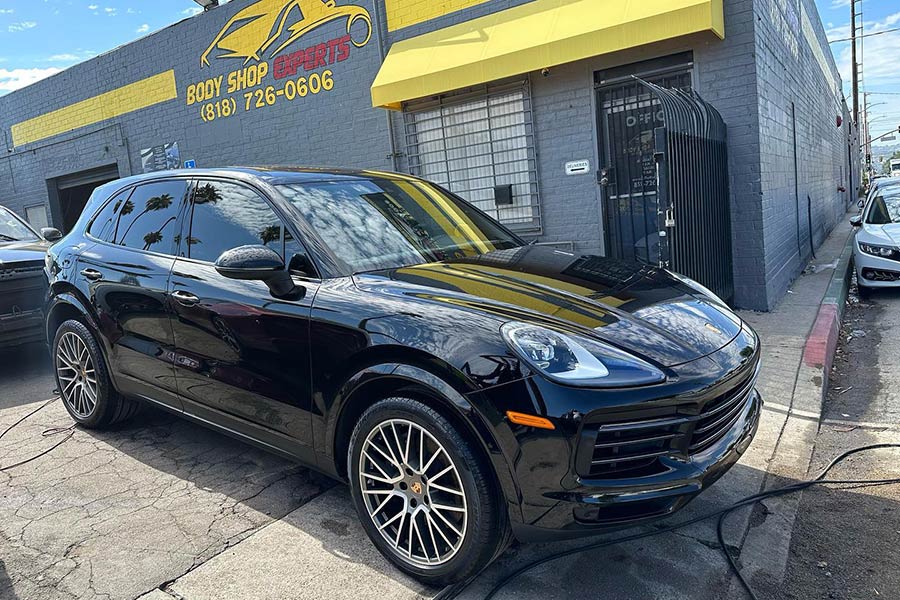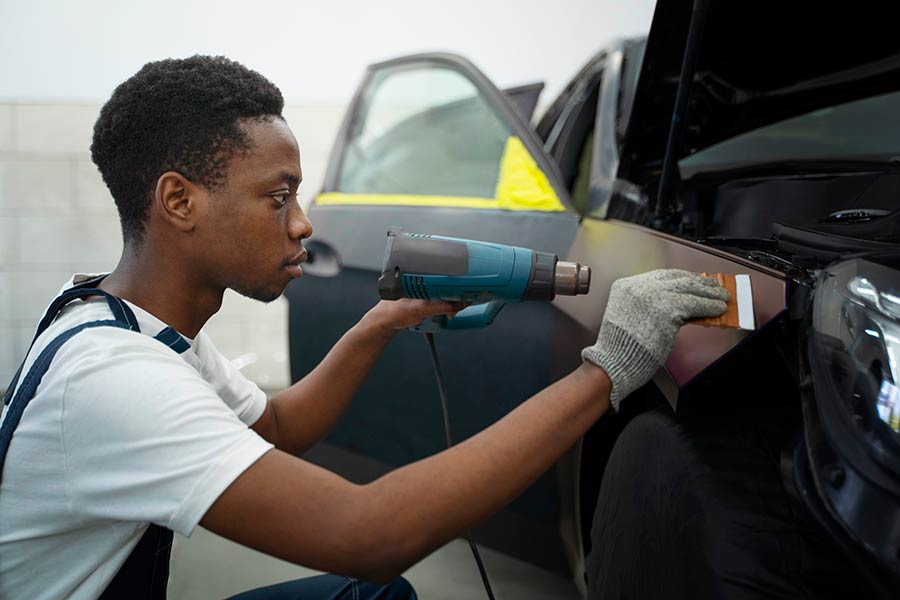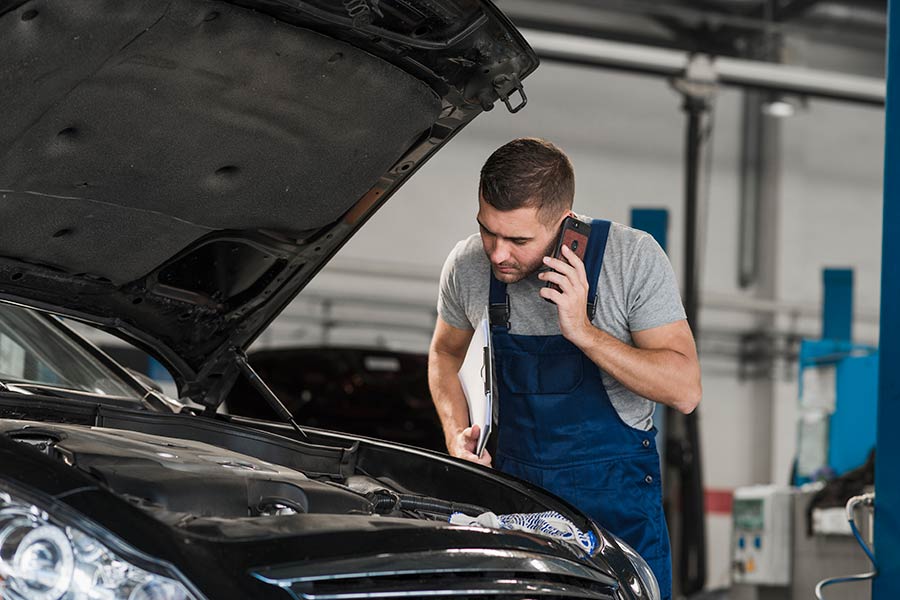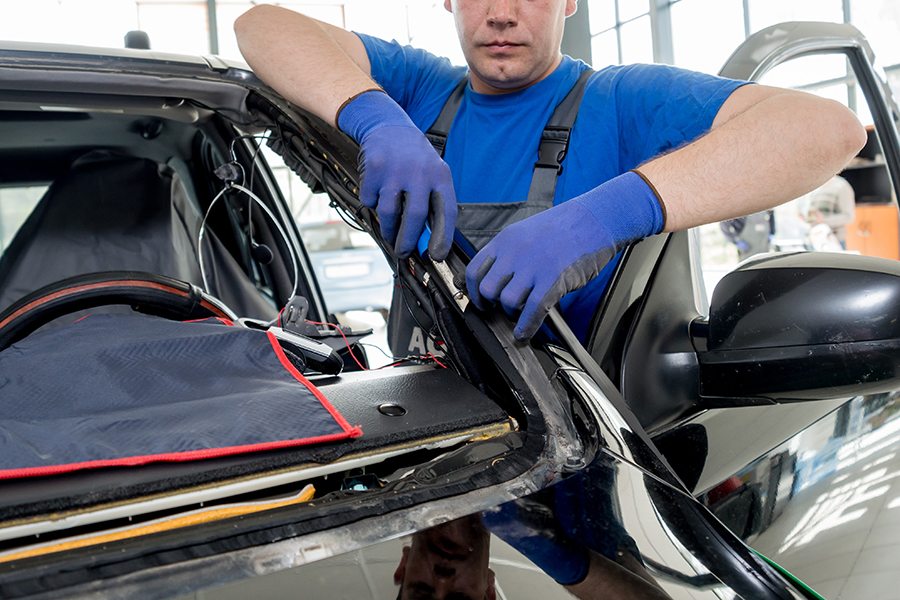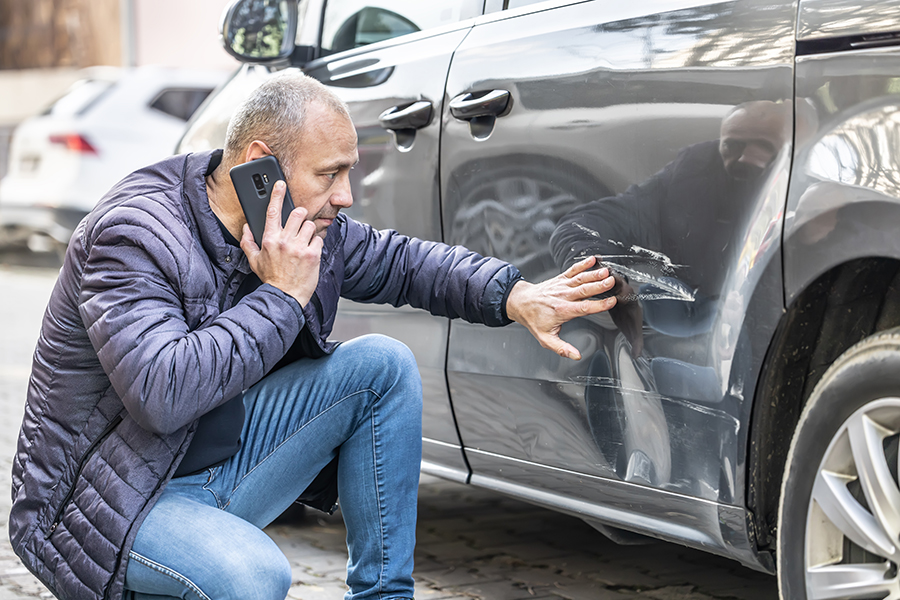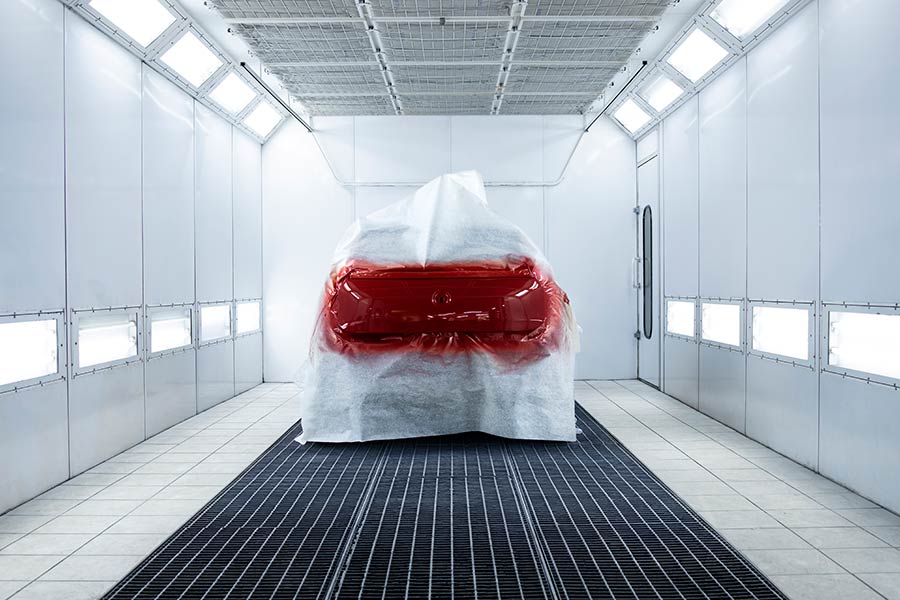When your car gets banged up, the next steps can feel like a maze. On one side, you've got OEM parts collision repair, promising a return to factory freshness but often at a steeper price. On the flip side, aftermarket parts tempt with lower costs but can be a gamble on quality. Navigating this choice isn't just about fixing dents and scratches; it's about understanding what's best for your ride in the long run. Let's dive into why picking OEM parts might just be the secret ingredient to keeping your car's value and integrity intact.
Key Takeaways
-
OEM parts ensure the best fit and performance for your vehicle during collision repair, matching the original specifications.
-
Choosing OEM over aftermarket parts can save you from compatibility issues and potential safety concerns.
-
Always verify the authenticity of OEM parts to avoid counterfeit products that can compromise your vehicle's integrity.
-
Sourcing OEM parts might seem challenging but can be managed through authorized dealers or direct manufacturer contact.
-
Warranty coverage is often more comprehensive with OEM parts, offering peace of mind and long-term savings.
-
Using OEM parts for repairs can enhance the resale value of your vehicle, making it a smart investment for future returns.
OEM Parts Defined
Authenticity Importance
Genuine OEM parts play a vital role in maintaining a car's integrity. They fit perfectly because they're made by the original manufacturer. This perfect fit helps avoid future repair issues. It also has a big impact on the car's longevity and safety. Using authentic parts means your car runs as it was designed to, keeping you safer on the road.
Durability Assurance
OEM parts go through tough testing for durability. This ensures they last longer than non-OEM parts. The materials used are of high quality, contributing to a longer life for these parts. When comparing, OEM parts often outlast their non-OEM counterparts. This makes them a smart choice for car repairs.
Quality Commitment
Manufacturers are deeply committed to producing high-quality OEM parts. They follow strict quality control processes. Every part is checked to make sure it meets high standards before it leaves the factory. This commitment ensures that every OEM part is consistent in quality and performance.
OEM vs Aftermarket
Quality Comparison
OEM parts boast superior material and build quality compared to aftermarket alternatives. They match the original components in your vehicle perfectly. This ensures optimal performance and reliability.
Aftermarket parts, however, may not always fit as seamlessly. This could lead to quicker wear and potentially compromise your car's health.
Safety Considerations
OEM parts are engineered with your vehicle's safety systems in mind. They work together with other components to provide maximum protection.
Using non-OEM parts can introduce risks. These might not have undergone the same rigorous testing as OEM parts, including crash test ratings. Such oversight could endanger occupant safety in an accident.
Warranty Implications
Opting for OEM parts keeps your vehicle's warranty intact. Manufacturers often require the use of OEM parts for repairs to uphold the warranty terms.
Conversely, fitting your car with aftermarket parts could void its warranty. This leaves you without support if something goes wrong later on. OEM parts come with their own warranties, offering added peace of mind during claims.
Long-term Value
Investing in OEM parts proves cost-effective over time. Though they might cost more upfront, their durability means fewer replacements are needed.
Vehicles maintained with OEM parts also tend to have higher resale values. Owners benefit from long-term savings and reduced hassles with frequent part failures.
Authenticity Verification
Ensuring Origin
To confirm the OEM status of parts, always check for markings or labels. These often include the manufacturer's logo or a part number. It proves that the item came from the original equipment manufacturer.
Buying parts from authorized dealers is crucial. They guarantee you get genuine components. Authorized dealers have direct access to the OEM inventory, ensuring authenticity.
The VIN (Vehicle Identification Number) plays a key role in compatibility. It helps match your vehicle with the right parts. This ensures that the pieces fit and work as intended in your car.
Certification Process
OEM parts must meet specific standards. These are set by the automotive industry to ensure safety and quality. The certification process involves rigorous testing.
Industry certifications serve as a seal of quality. They tell you that a part has passed essential tests for durability and safety. This reassurance is vital for collision repair.
Certified parts are more reliable and safer. They have undergone checks to ensure they meet high standards. This makes them a better choice for repairing your vehicle after an accident.
Sourcing OEM Parts
Reputable Suppliers
To identify reputable OEM part suppliers, look for these criteria:
-
Certifications from car manufacturers.
-
Positive reviews and ratings online.
-
Transparent pricing and warranty policies.
Buying from authorized dealers ensures you get genuine parts. This guarantees your vehicle’s performance stays top-notch. Authorized dealers often offer warranties, adding peace of mind.
However, beware of common pitfalls. Some suppliers might sell counterfeit parts as genuine. Always verify the authenticity of the parts. Remember, a deal that seems too good to be true probably is.
Certified Body Shops
Choosing body shops certified by car manufacturers is crucial. These shops have passed rigorous standards set by car makers. They ensure technicians receive ongoing training. The shops also maintain state-of-the-art equipment.
Certified shops offer assurance of quality repairs. They use genuine OEM parts for collision repair work. This means your car gets fixed according to factory specifications.
Quality repairs with certified professionals safeguard your vehicle's integrity and value. It also ensures safety features work correctly after repairs.
Compatibility and Fit
Fit Assurance
OEM parts are made by the vehicle's manufacturer. They guarantee a perfect fit for specific models. This is crucial because each part is designed to match precisely, ensuring a seamless integration with the vehicle.
Aftermarket parts often lack this precision. They might not align correctly, leading to gaps or improper installation. This can cause rattles, leaks, and other issues that detract from the vehicle's appearance and functionality.
The impact of fit on a vehicle goes beyond looks. It influences how well the car performs and lasts over time. A poor fit can lead to accelerated wear and tear, affecting the vehicle's overall health.
Performance Consistency
Using OEM parts ensures that your vehicle maintains its original performance level. These parts are identical to those your car came with, so they work together perfectly.
Aftermarket parts might not match the quality or specifications of OEM components. This can lead to performance discrepancies, causing the car to run less efficiently or safely.
Consistent performance is key for a long vehicle lifespan and safety. OEM parts help keep your car running as it was meant to, avoiding unexpected breakdowns or failures.
Warranty Coverage
Warranty Rights
When you choose OEM parts for collision repair, you're backed by strong warranty rights. These rights ensure that your car gets the best possible treatment. The Magnuson-Moss Warranty Act plays a big role here. It makes sure warranties are clear and fair. This law helps if there's a dispute over warranty coverage.
To stand up for your warranty rights, it's crucial to know what they are. You should also keep all repair documents. They prove you used OEM parts. This can help if there's ever a problem with the repair.
Coverage Benefits
OEM parts warranties offer comprehensive coverage. This is because car makers want to stand behind their parts. They fit perfectly since they're made just for your car model. This perfect fit was discussed in the "Compatibility and Fit" section.
Using OEM parts brings peace of mind. You know the part will work right and last long. If something goes wrong, dealing with warranty issues is easier through authorized dealers. They handle everything, making it stress-free for you.
Enhancing Resale Value
Vehicle Value Boost
Using OEM parts for collision repair does more than just fix your car. It can also make your car worth more when you decide to sell it. Buyers often look for cars that have been well taken care of. They see OEM parts as a sign of high-quality maintenance. This makes your car more attractive to them.
Keeping records of repairs with OEM parts can be a big help too. These documents show buyers that the car has received the best care. They prove that you didn't cut corners on repairs.
Consumer Rights Knowledge
You have certain rights when it comes to fixing your car after an accident. You can choose to use OEM parts for repairs. This is important to know because it affects your car's condition and value.
To make sure you get OEM parts, talk to your insurance company and repair shop. Be clear about what you want. It's also good to understand your policy details regarding OEM part coverage.
Making informed decisions is key to keeping your car in top shape. Knowing your rights helps you protect the value and integrity of your vehicle.
Practical Advice
Verifying Authenticity Tips
To ensure you're getting genuine OEM parts for collision repair, always check the serial number. This unique identifier helps confirm the part's authenticity. Manufacturers often list these numbers on their websites for verification.
OEM packaging and documentation are also key indicators of a part's legitimacy. Genuine parts come in branded packaging with proper documentation, including installation instructions and warranty information. Be wary if these elements are missing.
The market has its share of counterfeit parts. These knock-offs can compromise your vehicle's safety and performance. They might look like the real deal but often fall short in quality and durability.
Sourcing Tips
Finding reliable sources for OEM parts requires diligence. Direct purchases from the manufacturer or authorized dealers guarantee you get genuine components. These sources provide parts that fit perfectly and perform as expected, enhancing your vehicle's resale value.
Comparing prices is crucial, but so is verifying part numbers. Even small differences in part numbers can mean big differences in fitment and function. Make sure the part number matches exactly what you need.
Summary
Choosing OEM parts for your collision repair is like picking the perfect-fit puzzle piece—it just makes sense. You've seen how they stack up against aftermarket parts, ensuring your ride gets back to its original glory with authenticity, perfect compatibility, and that sweet warranty coverage. Plus, thinking about the future, OEM parts help keep your car's value on the up and up. We've also walked you through how to spot the real deal and where to find these gems. It's clear, going OEM is a smart move for your car's health and your peace of mind.
Now, don't just sit there! Take this knowledge for a spin. Next time you're facing repairs, ask for OEM parts by name. Your car deserves the best—give it the love it needs with parts that are made for it. Drive safe, smart, and in style with OEM parts leading the way. Ready to rev up your car care game? Let's hit the road together.
Frequently Asked Questions
What exactly are OEM parts?
OEM parts are like the original pieces of a puzzle made by your car’s manufacturer. They fit and work just like the ones your car came with.
How do OEM parts compare to aftermarket parts?
Think of OEM parts as the original recipe ingredients and aftermarket parts as the store brand. Both can work, but OEMs promise a perfect match every time.
Why is authenticity verification important for OEM parts?
It's like ensuring you're getting a genuine designer bag instead of a knock-off. Authenticity means you're getting the real deal, which is crucial for safety and performance.
Where can I find OEM parts for collision repair?
Your best bet is authorized dealers or certified repair shops. They have direct access to the genuine stuff straight from the manufacturer.
Do OEM parts really fit better than aftermarket ones?
Absolutely! It’s like comparing custom-tailored clothes to off-the-rack options. OEM parts are designed specifically for your vehicle, ensuring a perfect fit.
How does using OEM parts affect my warranty coverage?
Using OEM parts keeps your warranty safe. It's like sticking to the doctor's prescription to ensure your treatment works as it should.
Can OEM parts boost my car's resale value?
Yes, they can! It’s like selling a house with original, high-quality fixtures versus cheaper replacements. Buyers often pay more for cars maintained with OEM parts.
